Novatec
Summit
Are you ready for a journey through the world of technologies and methods?
Experts from all sectors are waiting for you with exciting topics, trends, methods, and technologies from the entire Novatec portfolio. We celebrate knowledge!
The new Novatec Summit
For the sixth year in a row the Novatec Summit is taking place! An internal conference for our colleagues has become an annual event for everyone who wants to expand their knowledge and exchange ideas with experts from the IT industry. On November 9th, 2023, you will have the opportunity to listen to presentations from top industry speakers and deepen your knowledge. What makes this event special is the personal level and interaction. The talks you will hear are usually only held at the most prestigious technology conferences, but on this day, they will take place in a familiar and friendly environment, facilitating peer-to-peer exchange.

5 reasons for your participation
- We look forward to welcoming you to a day with our relaxed and friendly team
- We’ll show you the latest technology trends, topics, and methods
- Our speakers can’t wait to share their knowledge with you
- Who are we and what do we do every day? We’d rather show you after your registration
- News, news, news – after all we are not living in yesteryear
What you can expect at the Novatec Summit?
Let us take you into the world of Novatec for one day. Experience the latest technology trends, topics, and methods of software engineering in a relaxed environment. More than 30 colleagues are looking forward to meeting you and exchanging ideas with you. In their talks you can gain input and insights from real projects and processes that will expand your knowledge, because “we celebrate knowledge”! We are especially pleased to have expert Dr. Venkat Subramaniam as our keynote speaker with us. Dr. Venkat Subramaniam is an award-winning author, founder of Agile Developer, Inc., and a professor at the University of Houston. He has mentored tens of thousands of software developers in the US, Canada, Europe, and Asia, and is a regularly-invited speaker at several international conferences.
A total of 29 super exciting presentations, divided into four tracks, are waiting for you.
Track A
Navigating Digital Frontiers: Agile Insights, UX Mastery, and Engineering Evolution
Track B
Tech Resilience Odyssey: Mastering APIs, Design Strategies, and Frameworks
Track C
Beyond Boundaries: Insights into Monitoring, Security, and Cloud Advancements
Track D
Tech Beyond Tapas: Deep Dive into Granada’s Tech Ecosystem
Where and when does the event take place?
This year our Novatec Summit will take place on November, 9th, 2023 from 08:45 am to 05:54 pm. in Leinfelden-Echterdingen (Germany) or Granada (Spain).
We would also like to invite you to the Aftersummit starting at 6 pm. In our branches, you can round off the evening together with other attendees and speakers in a relaxed atmoshere, picking up on previous conversations or taking a look behind the scenes at Novatec. Of course, your well-being is guaranteed. (Germany: Next to bertha’s place, Bertha-Benz-Platz 1, 70771 Leinfelden-Echterdingen or Granada: same location as the Novatec Summit
For those who can’t attend in person, we’ve got you covered with a virtual option.
Locations
Germany
bertha´s place
Bertha-Benz-Platz 2
70771 Leinfelden-Echterdingen
Spain
Novatec Software Engineering España
P.º de la Bomba 5
18008 Granada
Schedule
Track A:
Navigating Digital Frontiers:
Agile Insights, UX Mastery, and Engineering Evolution
(Hosts: Daniela Schmid/Anna Hummel)
If you ever worked in a professional software project, you had someone taking care of UI/UX in your team. Ideally it was a dedicated role. If not, let me guess: It was this frontend folk!
Those frontend people create the UI, what should you as a Backend Developer do for UX?
In our talk we take you by the hand and walk you through the whole Software development process.
Starting with the design phase in which you should already consider the potential user flow and processes when planning your architecture. While implementing your application you may want to provide a fast-responding API and prepare for future tracing after release.
After Go-Live there are a lot of things negatively impacting your applications UX like high response times or even downtimes of a service you might want to detect and recover before the user even knows.
Together we’ll find out where you can have an impact on the user experience of your project!
In today’s fast-paced world, staying up-to-date with the latest knowledge and advancements can be challenging, particularly due to limited time availability. Even a small proof-of-concept project might not show the whole picture of a technology or topic.
This talk shares the experience of a team-based internal education approach in my team over the last 5 years. It focuses on how we approached the topic of improving ourselves professionally through working on internal projects or topics together, highlighting the benefits and drawbacks we encountered. The talk will emphasise the importance of focus and goal-oriented work as we delve into the structure and way of working, applied to ensure a business-oriented education that benefits ourselves as well as our company.
In each code base (and therefore development team) exist a lot of coding agreements. In most of the cases those agreements are of technical nature like how to structure any code, what statements to use and what statements not to use. While a lot of those agreements are standardized and can be automatically checked by tools, there are also highly individual coding agreements concerning only the code base and its team. In most cases, these agreements either only live in the heads of the developer or are documented without the reasoning behind them, somewhere no one knows. This leads to individual agreements being overlooked while developing or only coming up on code reviews, when a developer knowing them has a look. In this presentation a solution is shown, how to automatically check individual coding agreements using Kotlin and Detekt. This will prevent coding agreements to be forgotten and free the mind of developers.
Wie lange dauert das Projekt?
Können wir bitte die Personentage pro Kopf für den Projektplan erfahren?
Wie leite ich empirisch Vorhersagen ab?
Wie schaffe ich Transparenz über den Projektverlauf?
Welche Einflussmöglichkeiten habe ich von außen auf den Outcome und die Dauer des Projektes einzuwirken? Alle diese Fragen werden wir beantworten und viele agile Schätzungsmethoden präsentieren.
Java was once a language that dragged along at snail’s pace. Thankfully, that’s no longer the case. In recent years, the pace of development has accelerated, both in language features and in the JDK improvements. Come along to dive into some of the recent changes of Java that are both fun and powerful to use, to learn how you can benefit from these, and we’ll also discuss where the language is heading in the near future.
Design Thinking und UX sind in aller Munde – doch was ist das überhaupt? Gibt es Überschneidungen, schließt das eine das andere aus oder gehen sie Hand in Hand?
Es wird Zeit dies endgültig zu klären! In unserem Vortrag werden wir uns beides genauer anschauen und herausfinden, was unter Design Thinking und UX verstanden wird. Welche Methoden jeweils in den unterschiedlichen Bereichen genutzt werden und wie diese überhaupt in der Produktentwicklung zum Einsatz kommen.
Auf in den Kampf! Hierzu gehen wir näher auf den Entwicklungsprozess eines Produktes ein und gehen Runde für Runde jeweils die Schritte und Methoden durch.
Wer geht als Gewinner hervor?
Reden die Fachexpert:innen alle aneinander vorbei und Entwickler:innen nur über seltsames technisches Zeug? Wird ständig etwas Falsches entwickelt? Dauern fachliche Onboardings immer viel zu lange? Wird in Prozessen viel Geld verbrannt, obwohl alle Fachexpert:innen meinen, dass ihr Teil der Gesamtprozesse gut läuft? Soll Schatten IT aufgedeckt werden?
Diese und viele weitere Möglichkeiten bietet Domain Storytelling – eine Methode zum Knowledge Crunching und Collaborative Modelling.
Dieser Talk soll anhand einiger Randinformationen und eines Live Beispiels einen Einblick in die Methode geben, mit dessen Hilfe das Wissen aller beteiligter Stakeholder, von Fachexpert:innen bis zu Entwickler:innen, zusammen gebracht werden kann. Außerdem soll eine gemeinsame Sprache und Verständnis über Wissenssilos und Grenzen hinweg entwickelt werden können. Im Gegensatz zum Event Storming kann ein Teil dieses gemeinsamen Wissens sogar konserviert werden und später für Prozessanpassungen oder Onboardings genutzt werden.
Agile Skalierung bedeutet, eine lernende Organisation zu gestalten. Was genau bedeutet das und welche Herausforderungen hat man wenn man die Teams, Abteilungen oder sogar ganze Organisationen agil skalieren oder neu organisieren möchte? Wir werden unsere Praxiserfahrungen teilen, viele wertvolle Tipps geben und konkrete Praktiken für die agile Skalierung präsentieren, die Du auch verwenden kannst!
Track B:
Tech Resilience Odyssey:
Mastering APIs, Design Strategies, and Frameworks
(Host: Philipp Duwe )
Kubernetes is often referred to as Container as a Service (CaaS) and is placed as an abstraction layer between the cloud service model Infrastructure and Platform as a Service (IaaS and PaaS). While from a developer perspective it focusses to appear rather as a PaaS model, from a financial perspective the costs incur from the IaaS model. The costs incur from the runtime of the assigned virtual machines – whether they are well utilized or not – as opposed to paying for the runtime of the containers.
This is one of many adoption insights in terms of „hidden costs“. In this talk Matthias and Thorsten describe their experience about those costs based on the experience of adopting CaaS in several client scenarios. In most cases it was set-up to achieve a „PaaS-like“ self-service developer experience. This covers 5+ years of lesson’s learned in on- and off-prem setups, GitOps, security, automation, application deployment, legacy integration, observability and skill enablement.
Lea will give an introduction to the WebGPU API which recently made it into stable versions of Chrome and is behind a flag in Firefox. Based on that, she will outline how to build a basic game from scratch, how to architecture the code and how to deal with the not-so-great-yet cross-browser support as of current.
Rough talk outline:
- Short introduction about me
- What’s WebGPU and how does it compare to WebGL?
- Let’s build a game: Code Architecture and Initializing WebGPU
- Providing geometries
- Drawing the Game Screen and providing the game logic
- Live Demo
- Summary, Further Resources
In den letzten Jahren kam wohl kein Software-Vorhaben um den Microservice-Hype herum. Und auch wenn das Architektur-Pattern viele – größtenteils organisatorische – Probleme adressiert, bringt es eine ganze Reihe neuer Herausforderungen mit sich.
Wo beispielsweise in einem Mono-/Modulithen ein einfacher Methodenaufruf reicht, kann in einem verteilten System ein (Remote-)Call zu einem anderen Microservice notwendig werden. Und plötzlich wird aus einer lokalen Transaktion ein Problem mit verteilter Komplexität. Und einzelne Prozessschritte können aufgrund von beispielsweise Netzwerk- oder Infrastrukturausfällen im ungünstigsten Fall zu einem vollständigen Abbruch oder Dateninkonsistenzen führen.
Glücklicherweise gibt es eine Fülle von Lösungsmustern, Frameworks und Service Meshs, die dabei helfen sollen, verteilte Komplexität beherrschbar zu machen. Doch wie sieht deren konkrete Umsetzung aus?
Begleite uns auf eine (retrospektiven) Reise, wie wir eine verteilte Microservice-Anwendung nach und nach resilient gestalten konnten. Dabei begegnen wir bewährten Resilience Pattern und deren konkreter Realisierung. Anhand tatsächlich aufgetretener Probleme und Fehler wird praxisorientiert vorgestellt, wie wir diese iterativ lösen konnten.
Hier erfährst Du:
- Welche Herausforderungen ein verteiltes System mit sich bringt
- Was für Architektur-Pattern es zur Lösung gibt und wie deren Umsetzung aussieht
- Unsere Lessons Learned, wie wir eine verteile Anwendung resilient(er) gestalten konnten
Most applications have to deal with a large number of more or less complex models. This often poses a challenge for automated tests if they are to become readable, robust and maintainable at the same time. This talk will discuss a number of ways, with their advantages and disadvantages, how developers can deal with test data and even get it fully automated, for the most part, safely; no matter which testing approach is used. It is especially aimed at developers who want to focus on the essentials of automated testing and need to work with models that have more than three fields.
Java was once a language that dragged along at snail’s pace. Thankfully, that’s no longer the case. In recent years, the pace of development has accelerated, both in language features and in the JDK improvements. Come along to dive into some of the recent changes of Java that are both fun and powerful to use, to learn how you can benefit from these, and we’ll also discuss where the language is heading in the near future.
Durch den ständigen Wettkampf zwischen den Webentwicklungs-Technologien (Angular, React, Vue, Solid, Svelte, …) wurde auch in diesem Jahr das Streben nach verbesserter Produktivität, Performance und Wartbarkeit befeuert.
Angular ist ein beliebtes und leistungsstarkes JavaScript-Framework und bietet Entwicklern ein robustes Toolkit für den Aufbau komplexer Webanwendungen.
Doch mit dem technologischen Fortschritt im vergangenen Jahr stellt sich die Frage: „Wurde Angular auf das nächste Level gebracht?“
In diesem Vortrag werden wir die innovativen Fortschritte und spannenden Funktionen erkunden. Wir werden die neuesten Updates und Verbesserungen in Angular genauer betrachten und aufzeigen, wie sie gängige Herausforderungen angehen und die Entwicklererfahrung verbessern. Dabei wird auf verschiedene Aspekte wie Performance-Optimierungen und Arbeitsabläufe für Entwickler (DX) eingegangen.
Außerdem werden wir hilfreicher Bibliotheken (z.B. State-Management), die die Fähigkeiten von Angular erweitern, sowie fortgeschrittene Teststrategien und bewährte Methoden für den Aufbau skalierbarer und wartbarer Angular-Anwendungen ansprechen.
Abschließend werden wir die zukünftige Ausrichtung von Angular diskutieren Einblicke geben, was Entwickler in den kommenden Versionen erwarten können.
Over the last 2 years cloud-based integrated development environments (IDEs) such as Gitpod or GitHub Codespaces have gained a lot of popularity. Devpod is the most recent Open Source technology in this field and there will very likely be more additions in the near future.
With this talk I would like compare and contrast the features of these technologies as opposed to traditional ones and highlight how container technology serves as the base technology to make this happen.
This includes the devcontainer specification.
Furthermore, I will explore the advances made in this field and discuss the limitations that still exist.
The intended take-away for the audience is to see the ease and efficiency for developing polyglot, container-based distributed applications.
The live demo will show how a developer can start coding away in seconds without the need to set up any build environment for a magnitude of predefined programming languages and frameworks.
This includes immediate showcasing of the development results, testing ability and deployment to external Kubernetes environments.
Additionally, I will demonstrate how custom additions can be made if something is still missing.
This highlights how advanced this field has become in recent years and where there is still room for improvement.
Moreover, I will discuss how cloud IDEs have helped me in teaching distributed systems at university, by ensuring that all my students have a consistent development setup.
This will also showcase how these environments can be used to standardize development environments in team projects, making the development process more efficient and streamlined.
An API Gateway is a pattern that is widely adopted in Microservice architectures. It encapsulates the internal Microservices architecture and provides a specially tailored API for each client. It might also cover other cross-cutting concerns such as authentication, monitoring, caching, and resiliency.
Building upon Project Reactor, Spring WebFlux, and Spring Boot 2, Spring Cloud Gateway provides the edge service for your cloud-native Microservice applications. As a successor to Zuul Gateway, Spring Cloud Gateway provides a much more flexible API for the configuration. In addition, functionality such as rate-limiting, and WebSocket routing are supported out of the box.
This talk will dive into Spring Cloud Gateway and implement an API Gateway for Spring-Boot-based Microservice applications. In several live demos, you learn basic gateway features like routing and pre-/post filters, circuit breakers, request rate limiting, and authentication with OAuth 2.0 & OpenID Connect.
Track C:
Beyond Boundaries:
Insights into Monitoring, Security, and Cloud Advancements
(Host: Jochen Just )
Condition Monitoring ist nicht nur bei unseren Kunden aus dem Manufacturing-Bereich in aller Munde. Schöne Werbebilder von Windrädern, die durch bunte Linien im Netzwerk verbunden sind, mit hübschen Visualisierungen im Vordergrund, kennen wir alle.
Aber was ist Condition Monitoring eigentlich? Warum sollten unsere Kunden noch viel mehr in dieser Richtung unternehmen? Welche Themen schmerzen bei der Umsetzung besonders und wie unterstützen wir als Novatec? Welche Rolle spielt Domänenwissen dabei? Welche Erkenntnisse können wir aus den Daten ziehen und wie können unsere Kunden diese auch monetarisieren?
Das alles erfahrt ihr in diesem Vortrag, sowie unter anderem auch warum die Ludolfs uns bei der Strukturierung unserer Daten leider nicht helfen können.
A short overview over the different kinds of Large Language Models (LLM) and three tool suggestions / processes on how to use them on your own data, on your own hardware.
As more organizations are moving to the cloud, cloud architectures are getting more sophisticated by having a kind of technology diversity. This includes for example container orchestrators, database services, event meshes, networking components and virtual machines.
When it comes to security, observability on this diversity is paramount. The main question here is, do you really perceive when your app landscape is under attack?
In this session, you will have the opportunity to see various attack vectors and ways to mitigate and observe them. Many technologies will be used such as Kubernetes, eBPF, Cillium, Falco and much more!
Come and watch a live attack on a real-world based cloud architecture and see the attacker scan web applications and start lateral movement with the goal of exfiltrating data. Furthermore, become a part of the blue-team, defending and securing the architecture with modern open source tools.
Nowadays many applications run on the cloud. From startups up to big corporations use the cloud due to its speed and convenience. However there are many pitfalls that may derail a cloud application or even an entire system.
In this talk, I would like to present an opinionated guide for developing cloud-native applications from things I learned from past and current projects. In this guide I will talk about many aspects you should be aware of when developing cloud-native applications, those aspects include resilience, CI/CD pipelines, observability, API design, security, programming tips, agile software development and many more.
After this talk, you should know what it means to develop cloud-native applications, you should be able to avoid common pitfalls and be aware of best practices when developing cloud applications.
Java was once a language that dragged along at snail’s pace. Thankfully, that’s no longer the case. In recent years, the pace of development has accelerated, both in language features and in the JDK improvements. Come along to dive into some of the recent changes of Java that are both fun and powerful to use, to learn how you can benefit from these, and we’ll also discuss where the language is heading in the near future.
In today’s dynamic world of software development, high-performance teams are critical to the success of software projects.
High-performance teams have the necessary skills, mindsets and tools to work efficiently, communicate effectively and adapt to changing requirements.
Agile methodologies such as Scrum have become increasingly popular in recent years because of their emphasis on collaboration, flexibility and continuous improvement. However, adopting Scrum can also present some challenges for teams, particularly in areas such as communication, planning, and prioritization.
In this talk, we will explore why high-performance teams are so important to the software development process.
In Projekten erarbeiten wir mit unseren Kunden aus dem Maschinen- und Anlagenbau IoT-basierte Smarte Produkte. Dabei begegnen wir oft der Kundenfrage, wie innovative, neue Lösungen und die zugehörigen Geschäftsmodelle risikoarm entwickelt und in den Markt eingeführt werden können. Den Kunden kennt man aus bisherigen Geschäftsbeziehungen traditionellerweise und den etablierten Transaktionen. Wie können jedoch zukunftsfähige Modelle kundenzentrisch erarbeitet und etabliert werden?
Den Einsatz einer iterativen Vorgehensweise mit engen Feedbackzyklen und schnellen Ergebnissen sehen wir als Erfolgsfaktor innovativer Vorhaben.
Erfahrungsgemäß erfordern innovative Lösungen im Maschinen- und Anlagenbau eine Kombination aus Methode und Technik. Mit diesem Wissen stellen wir einen Ansatz vor, mit dem eben genau derartige Innovationen ausgearbeitet, entwickelt und validiert werden können. Der Ansatz umfasst die kundenzentrische Identifizierung von Bedarfen, die Definition einer Vision und Strategie, die Ausarbeitung eines Geschäftsmodells, die Entwicklung von Minimal Viable Products (MVP), sowie deren Validierung am Markt. Bei der Entwicklung von MVPs steht der Kundenmehrwert im Fokus. Aufgrund dessen werden wir Ideen geben, wie der technische Rahmen bestehend aus SPSen, Gateways, IoT-Plattformen und gängigen Schnittstellen und Protokollen aussehen kann.
Kubernetes is here to stay, if you love it or hate it! But why do you hate it? Doesn’t it solve all of your cloud problems?
As most of you know Kubernetes comes with an enourmous cost of complexity and a quite steep learning curve. Even when asking experts of the filed if they love or hate Kubernetes, they answers tend to show a love-hate relationship with the plattform.
In this talk I want to share with you reasons I found why Kubernetes can be confusing as well as show you the good, the bad and the ugly parts of the plattform
Track D:
Tech Beyond Tapas: Deep Dive into Granada’s Tech Ecosystem (Host: Habib Chalup/Tania Cobo/Pablo Espinar)
We are going to speak about GitOps culture, GitOps Tools and Infrastructire as a Data.
Anomaly detection is the process of identifying unusual or abnormal patterns in data that deviate from expected behavior. It has many applications in a variety of fields, such as cybersecurity, fraud detection, healthcare, and industrial monitoring. In this talk, I will explore whether Artificial Intelligence (AI) is always the best choice for anomaly detection, or whether there are cases where traditional statistical methods can outperform or complement AI.
I will compare the performance and advantages of some commonly used methods, testing them on real-world and synthetic datasets. I will also discuss some challenges and future directions for anomaly detection research.
We will go through the most relevant Kubernetes CNI plugins currently and will especially go deeper on Istio and Cilium.
Finally, we will do some demos to compare features and performance.
In a distributed system world, there are many moving parts that need to be tested in conjunction with each other but sometimes this task can be hard. Sometimes the dependencies to our services are not available or we need to develop our service in parallel with other team’s services and minimize dependence. For those reasons we can use contract testing in our projects to minimize risks.
Contract testing is a new technology for our integration testing toolbox. In this presentation we will show you the basics of Spring Cloud Contract, how to write your first contract for HTTP microservices and your first tests against it.
Java was once a language that dragged along at snail’s pace. Thankfully, that’s no longer the case. In recent years, the pace of development has accelerated, both in language features and in the JDK improvements. Come along to dive into some of the recent changes of Java that are both fun and powerful to use, to learn how you can benefit from these, and we’ll also discuss where the language is heading in the near future.
We will introduce DNS servers and explain their use in order to understand why they are so important on our work today. Then we will view CoreDNS, a DNS server, that K8s implements since version 1.9 in order to connect its pods between them making this microservices structure possible.
Talking about NgRx means talking about state management in Angular.
Have you ever heard about state in your front-end applications? Have you ever felt how your Angular application grows and data communication becomes a mess? Have you ever lost control of your Angular application and just keep praying for its expected behaviour? Then this talk might help you.
NgRx provides some rules and features to properly manage your data in your Angular application especially when your application grows and communication is even more complex.
In this talk we are going to learn the basics about GraphQL, benefits, downsides and how to implement it from scratch, I found this technology very interesting when I first heard about it in the Spring I/O conference last year and saw this Novasummit as an opportunity to learn more about it and also show you the possibilities it has as an open source query language that describes how a client should request information through an API from a begginer point of view
Our Speakers
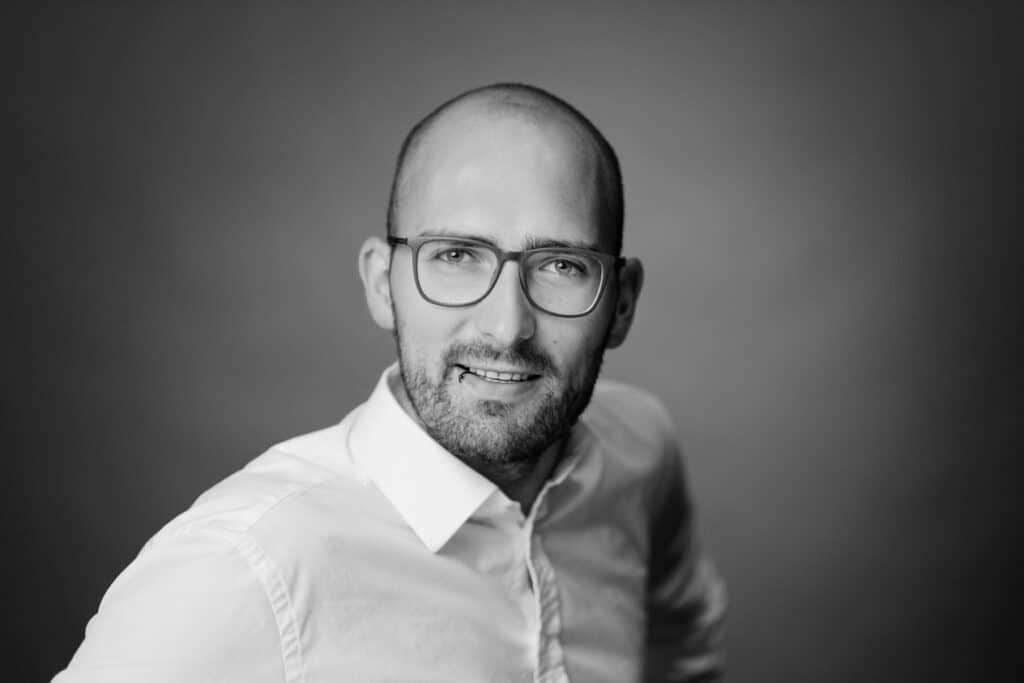
Marcel Bagemihl
As a Principal Software Engineer, I gained 5+ Years of professional experience in engineering cloud native applications for my customers using different Webtechnologies and mostly Spring Boot for Backend. As a People Lead of Frontend Engineering and UX, I always try to help my team to strive and evolve while acting as a role model.
I also live the dream of being a Feelgoodmanager!
And the best bowler at Novatec (that one time in Granada didn’t count!)
Christopher Weiß
I am a Principal Software Engineer at Novatec. In my 10 professional years, I have gained a lot of experience building and consuming APIs using a variety of technologies as well as different asynchronous technologies to consume or share data, such as Java Messaging Service and Apache Kafka. I am also a regular lecturer at the University of Applied Sciences, Kaiserlautern.
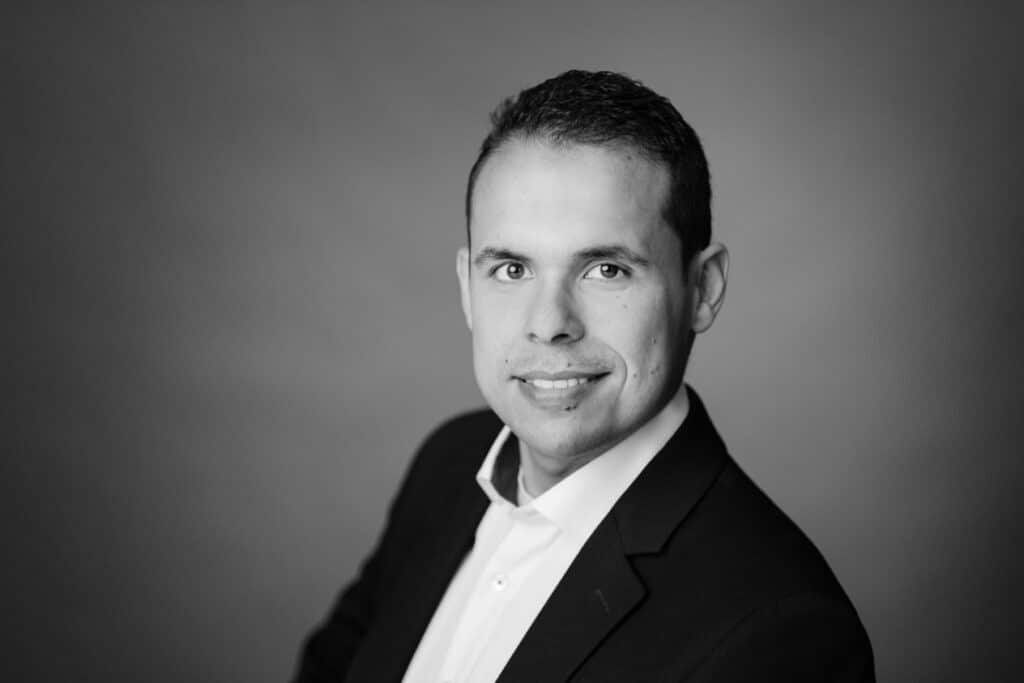

Fabian Ritter
I am an expert when it comes to the topics of digitalization and IoT. Based on many years of experience in mechanical and plant engineering, as well as in production logistics.
I advise and support my customers in the context of digitalization projects as a Senior Consultant at Novatec Consulting GmbH.
Sebastian Harner
I’m a Mobile Software Engineer with Novatec Consulting GmbH interested in everything related to mobile development reaching from technologies and libraries over tooling to CICD.


Lea Rosema
I am a frontend developer who has been living and working in Hamburg since 2018. Until 2019, I actively co-organised meetups like the HH.JS, which I now want to slowly revive. Since 2022, I have been working for Novatec GmbH as a senior software developer with a focus on accessibility, mainly in the Angular ecosystem. In my spare time, I like to experiment with modern browser APIs in the creative coding field.
Dr. Harald Bosch
I work as a Data Scientist at Novatec Consulting GmbH. I was awarded a doctorate in the field of data visualisation and analysis at the Institute “Visualisation and Interactive Systems” and have since also dealt with many software development topics.
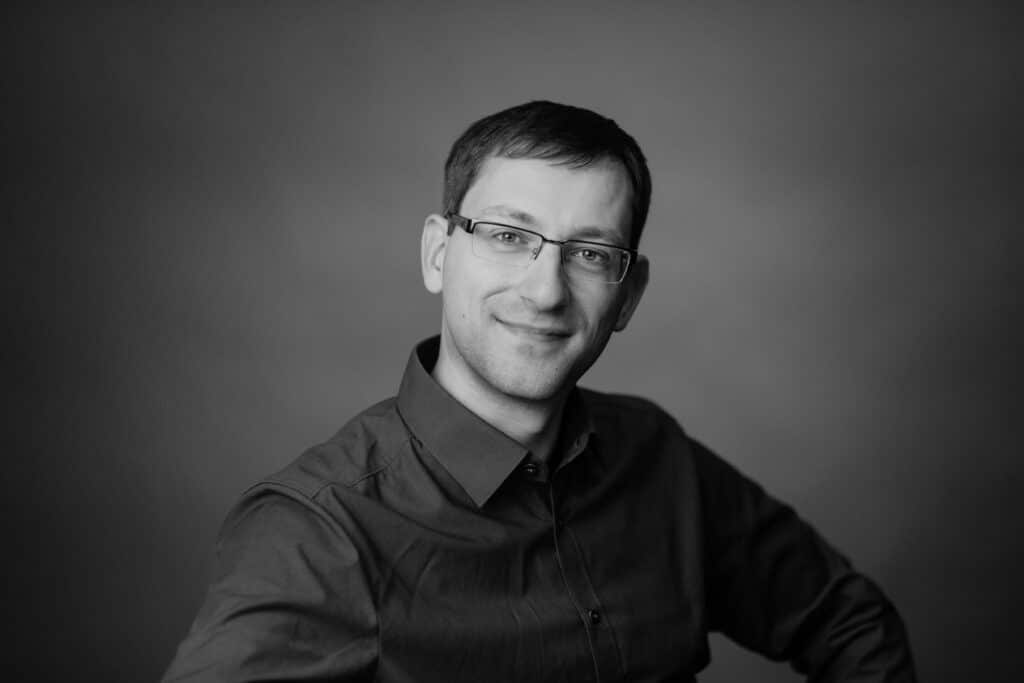
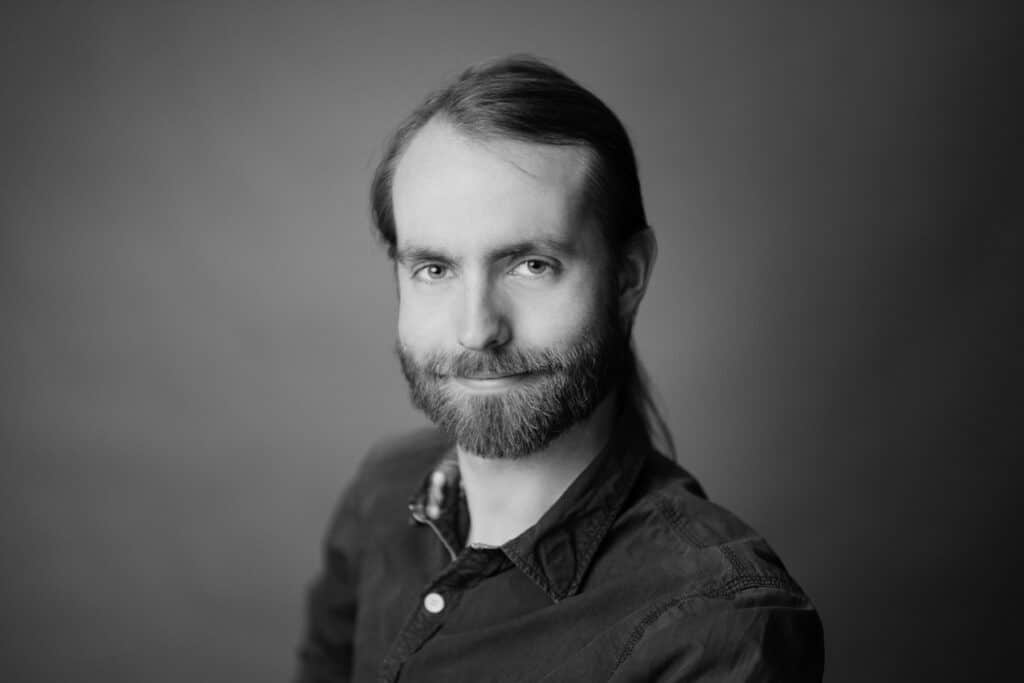
Steve Walter
I am a passionate software developer and architect. I have been professionally developing software in various customer projects for almost a decade, always looking for ways to improve the product at hand and making the developers‘ lives easier. This is done not only by teaching upcoming architects as a trainer for the iSAQB, but also by sharing my knowledge about small development gems, easing work. Finding answers to complex development and architecture questions brings me joy (at times).
Christian Schwörer
I support various clients in their digital transformation towards distributed, cloud-based microservice architectures.
I am convinced that the practical examination of the topic is worthwhile for every architect and developer – even if microservices are certainly not the „silver bullet“ for all software engineering problems and should therefore be used very specifically.
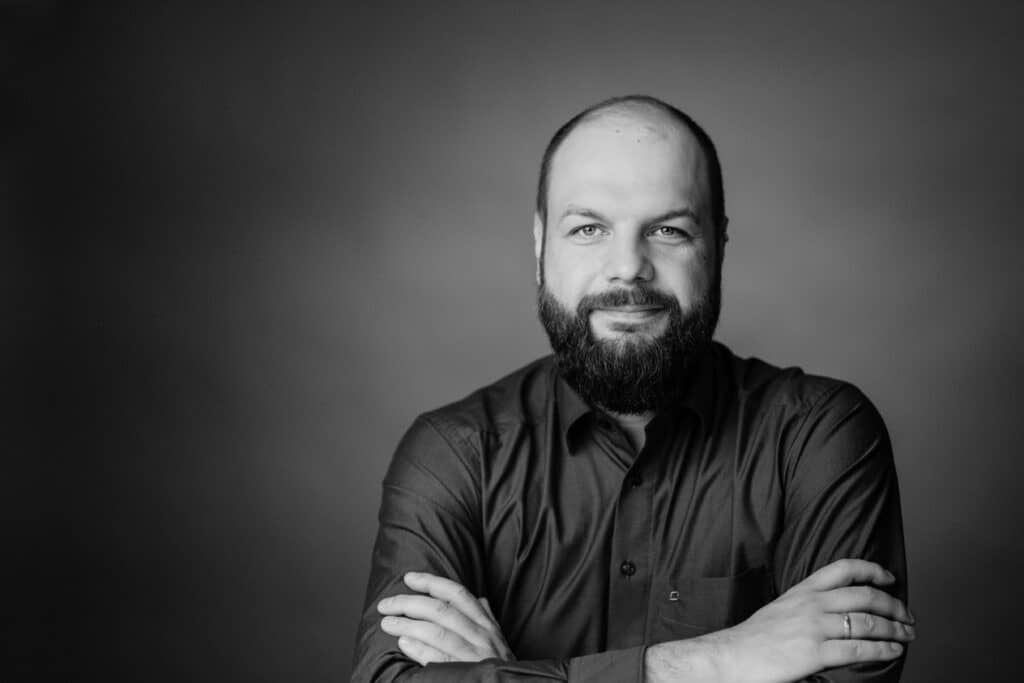

Mirna Alaisami
I am a Senior Consultant at Novatec Consulting GmbH focusing on Cloud Technologies and Platforms. I support and advise customers on building cloud architectures and migrating to various cloud platforms. I also develop and deliver training topics related to microservice development and CI/CD with the technology stacks of Spring Boot, Docker, Kubernetes & Cloud Foundry. Prior to that, I worked as a software developer with various languages and web-focused frameworks. In addition to my role as a consultant, I actively blog for Novatec, support meetups and user groups, have been a guest lecturer at different universities around Stuttgart, and speaker at various conferences and meetups (such as Cloud Foundry Summit, Container Days, JCON, European Cloud Summit, IT-Tage).
Maria Hülsbusch (ehemals Kolomizki)
Uniting people into teams and creating added value together – that is my passion! My specialty as a trainer is to convey all the possibilities of each Scrum role in such a way that the participants form a productive and harmonious symbiosis with other roles in the company in future in order to create higher added value for customers.
My professional focus is on systematic coaching of individual teams and organizations as well as conflict management and action-oriented learning.
I have already gained a lot of experience in different Scrum roles. I started my career in software engineering and because I had a lot of interest in agile, and always wanted to develop my team, I learned a lot about Scrum in theory and practice and later became a Scrum Master. In some projects I was already in the Pro-duct Owner role as well as a coach. This helps me to look at many everyday situations from different perspectives and to act accordingly.

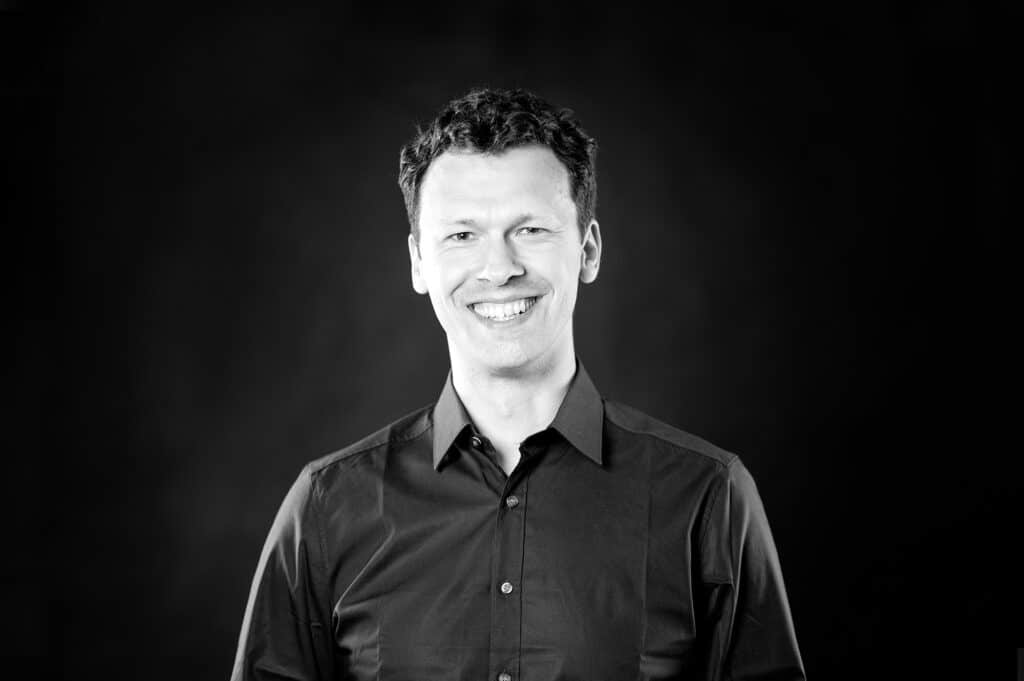
Mariano Mertinat
I have been working in software development since 2011 in eHealth, eGovernment, education, social services and automotive sectors as a software developer, tech lead, architect, chapter lead and consultant. In addition to software development, I help other developers find their way to robust software through workshops around architecture, design and test automation. Already the most popular and evolving full-day workshop on TDD since 2015, and a personal matter of the heart, it has made it to the Developer Open Space conference twice, in 2021 and again in 2023.
Carlos Barragan
I have worked as developer and architect in many projects across several industries for more over 15 years. I strive for pragmatic approaches and like to learn new things.

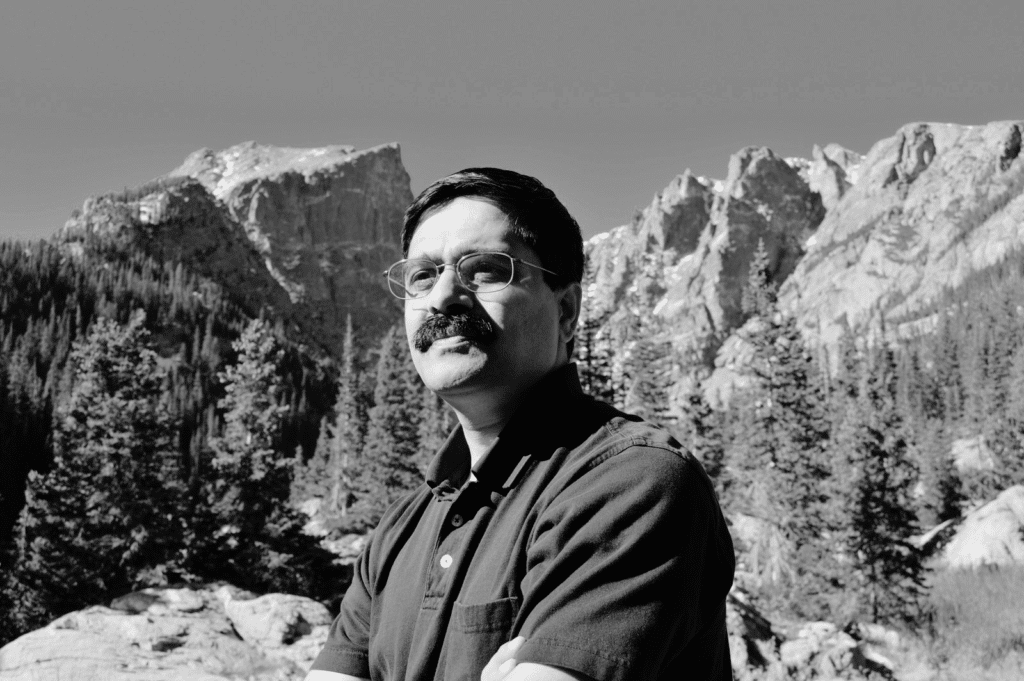
Venkat Subramaniam
I am an award-winning author, founder of Agile Developer, Inc., and an instructional professor at the University of Houston. I have trained and mentored thousands of software developers in the US, Canada, Europe, and Asia, and are a regularly-invited speaker at several international conferences. I help my clients effectively apply and succeed with sustainable agile practices on their software projects. I am a (co)author of multiple technical books, including the 2007 Jolt Productivity award-winning book Practices of an Agile Developer.
Miriam Becker
UX designer and visionary at Novatec Consulting GmbH.
During my various activities in software companies, start-ups and as a freelancer, it was always important to me to advance the UX topic and create the best possible solution for users. For this, exchange with software engineers has been very important to me from the beginning. I involve them directly in the concept phase and find joint compromises and solutions. Because only together is it possible to develop a great product.
That’s exactly what we do at Novatec. Together with software engineers, I build up the UX area in a company and redefine cooperation.
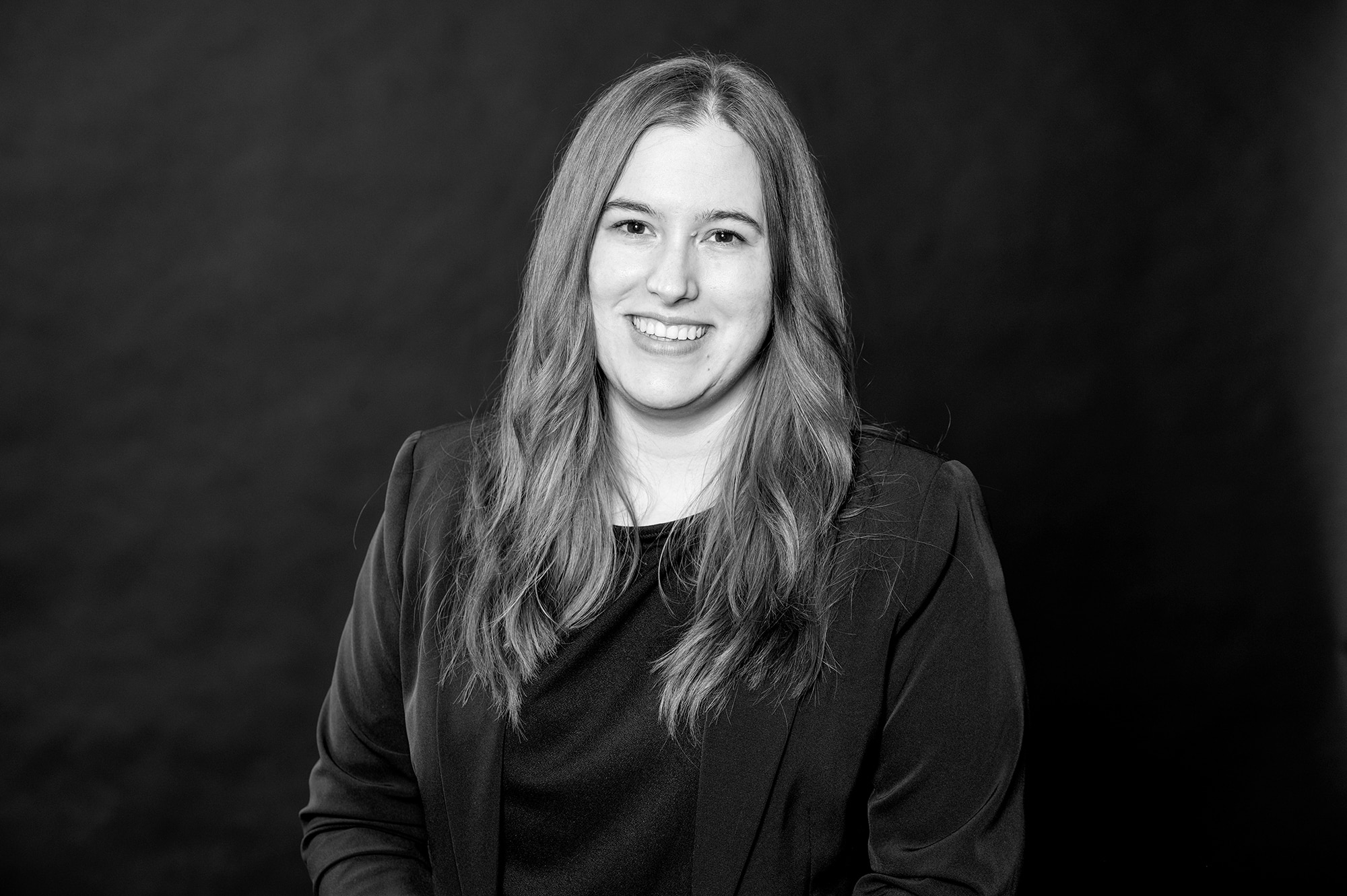
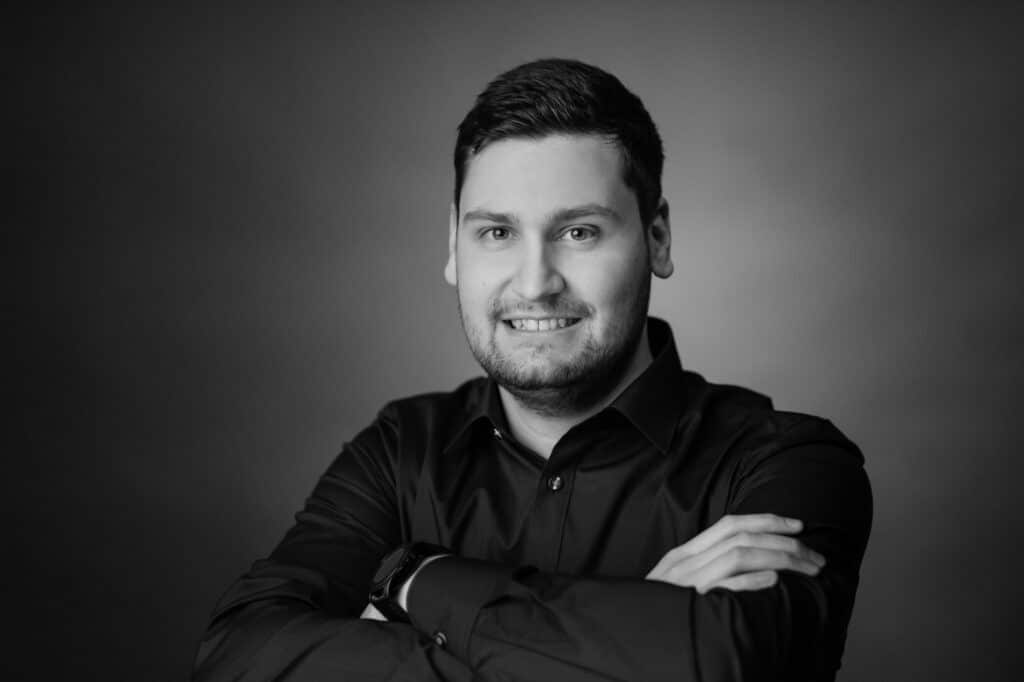
Sebastian Graef
After successfully completing my M.Sc. in Software Engineering at the University of Stuttgart, I entered the exciting world of technology to pursue my passion for problem-solving and architecture. At Novatec, I am now a Senior Software Engineer, with a special focus on enterprise web applications. I love using my expertise to develop and share innovative solutions. As a Lead Developer, I actively collaborate with cross-functional teams to ensure the success of our projects.
Corvin Schapöhler
In my role as Senior Software Engineer at Novatec, I focus on developing cloud-native applications as well as cloud platforms. With a great expertise in Kubernetes and container technology, I help customers in the automotive and construction sector in their digitalization efforts.
Besides this, I engage with the cloud native community by speaking at conferences and meetups, sharing my knowledge and experience with cloud technology and Kubernetes or teach students at several universities around Stuttgart on these topics.


Roger Faust
Since 1995 I have been advising customers in the field of process automation with a focus on industrial measurement technology. As a managing consultant, I am intensely involved with Industry 4.0 and digitalization of business processes. Since 2019, I have been co-founder of the start-up Heavy Data GmbH, which operates an IoT platform and offers PaaS and SaaS solutions for industrial applications. In 2022, I completed my training as a certified Scrum Master.
Matthias Haeussler
I am Chief Technologist at Novatec Consulting, a university lecturer for distributed systems, an awarded ambassador of Cloud Foundry and the Stuttgart Cloud Foundry Meetup organizer. I advise clients on Cloud strategies and support implementations and migrations. Prior to that, I was employed at IBM R&D Germany for more than 15 years. I have teaching experience from lectures at multiple universities in Stuttgart (DHBW, HSE, HfT). Apart from that, I am a frequent speaker at various national and international conferences and meetups. (e.g. Spring One Platform, Open Source Summit, KubeCon, Cloud Foundry Summit, Spring IO, WJAX & more).
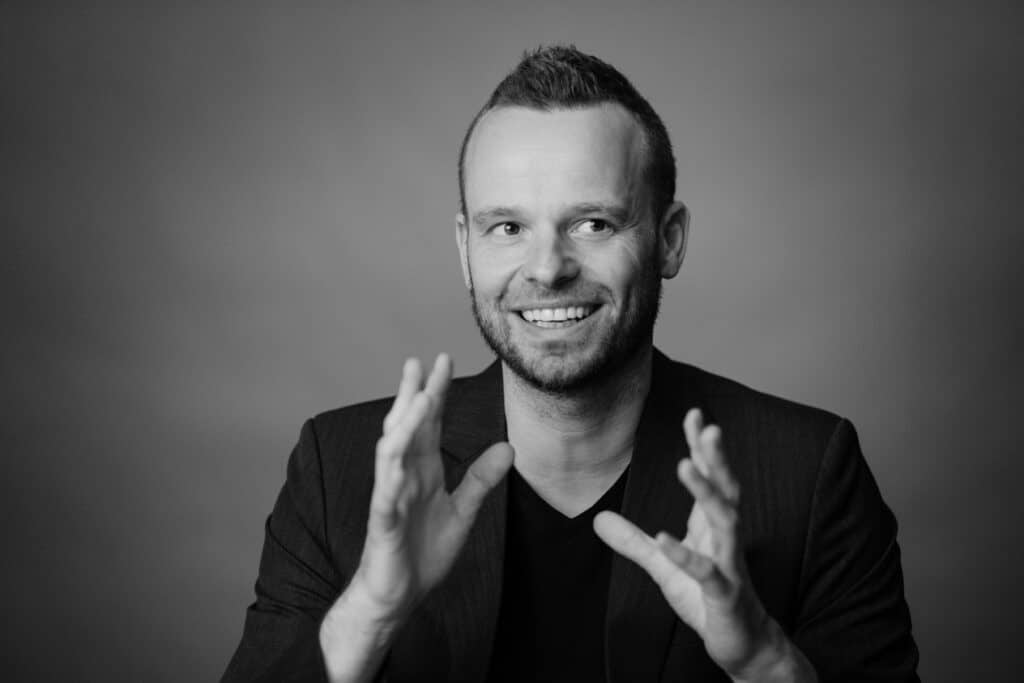
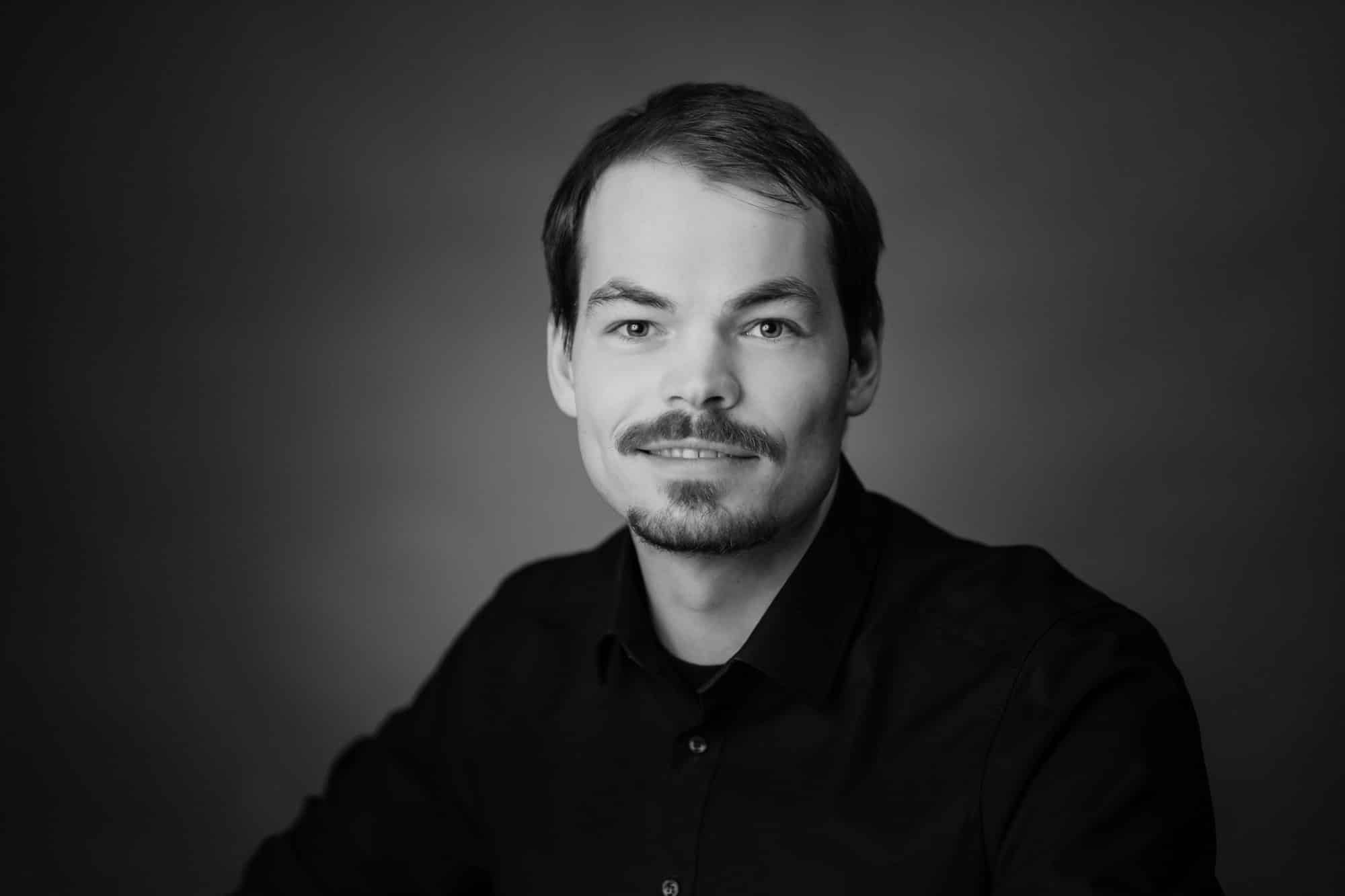
Simeon Mendgen
I am an IoT consultant and developer with a passion for connecting the worlds of Information Technology (IT) and Operational Technology (OT). With my background in the manufacturing industry and my studies and experience in computer science and IoT, I enable companies to gain more knowledge and value from their products through training, consulting, and implementation of IIoT solutions.
Andreas Falk
I have been working on enterprise application development projects for more than twenty years. Currently, I am a managing consultant for Novatec Consulting, located in Germany. In various projects, I have acted as a consultant, architect, coach, developer, and tester. I focus on agile development of cloud-native enterprise Java applications using the complete Spring platform. As a member of the Open Web Application Security Project (OWASP), I also like to have a closer look at all aspects of application security. I am a frequent speaker at conferences like Spring I/O, Devoxx, and Heise DevSec as well.
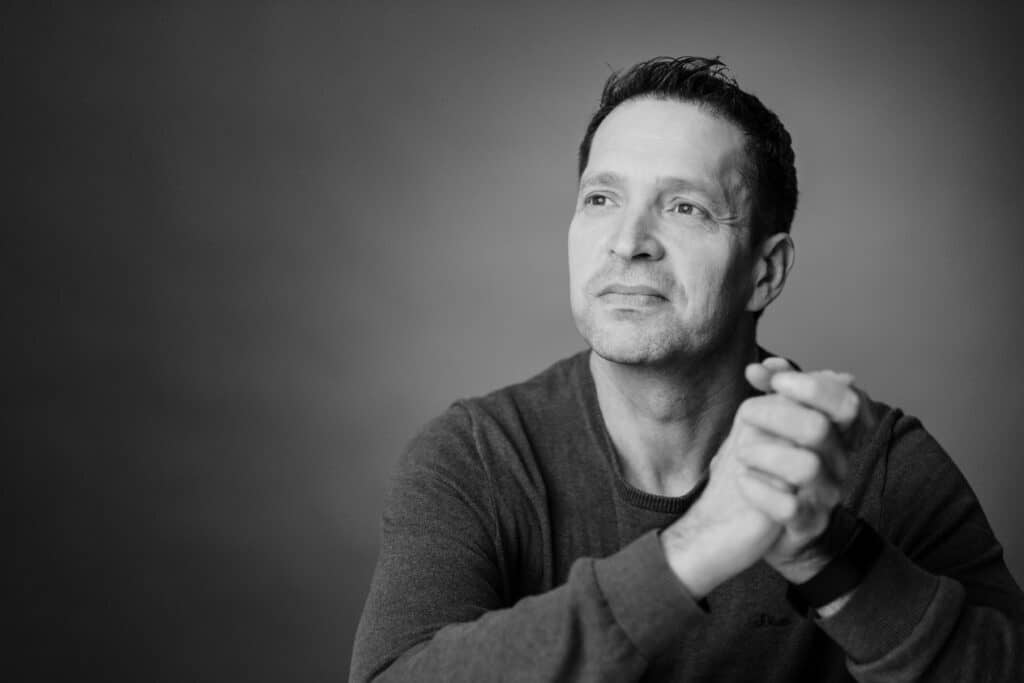
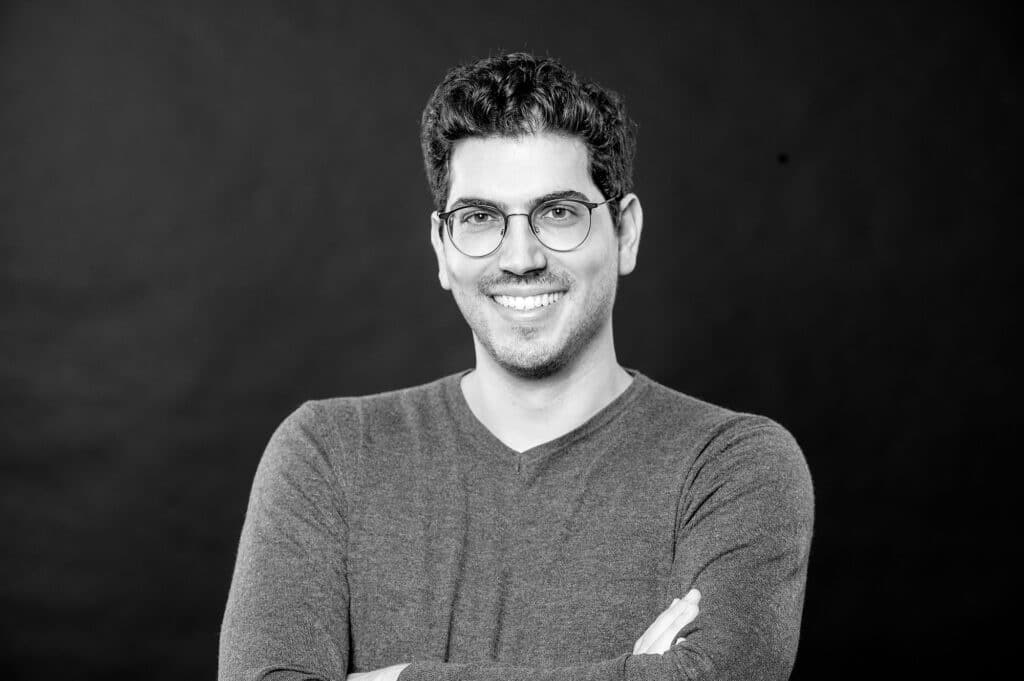
Paulo Ferreira da Silva
Paulo Ferreira da Silva, who has roots in Leinfelden-Echterdingen, Swabia, and the Portuguese island of Madeira, combines his passion for creativity and technology in his role as Senior Consultant and People Lead in New Business Development at Novatec Consulting GmbH. With six years of experience in strategic new business development, he always has an eye on new technologies and business opportunities to discover and exploit new potential. Together with clients, Paulo develops software solutions and acts as an interface between management, business and IT. In his spare time, Paulo enjoys cycling, keeping fit with weight training and immersing himself in a good book.
Thorsten Jakoby
I am a consultant for IT architectures and cloud migrations at Novatec in Germany. I am currently a Cloud Security Architect for highly regulated customers in Germany.
With a background of more than 10 years in distributed applications, I enable both customers building cloud architectures and students entering the IT and cloud world. Before joining Novatec, I ran a company specializing in cloud-based start-up projects.
Besides my role as a consultant, I am also a trainer and speaker at meetups and conferences (e.g., Cloud Foundry Summit EU, W-JAX, OOP, JCON, IT-Tage, Frankfurter Entwicklertag).

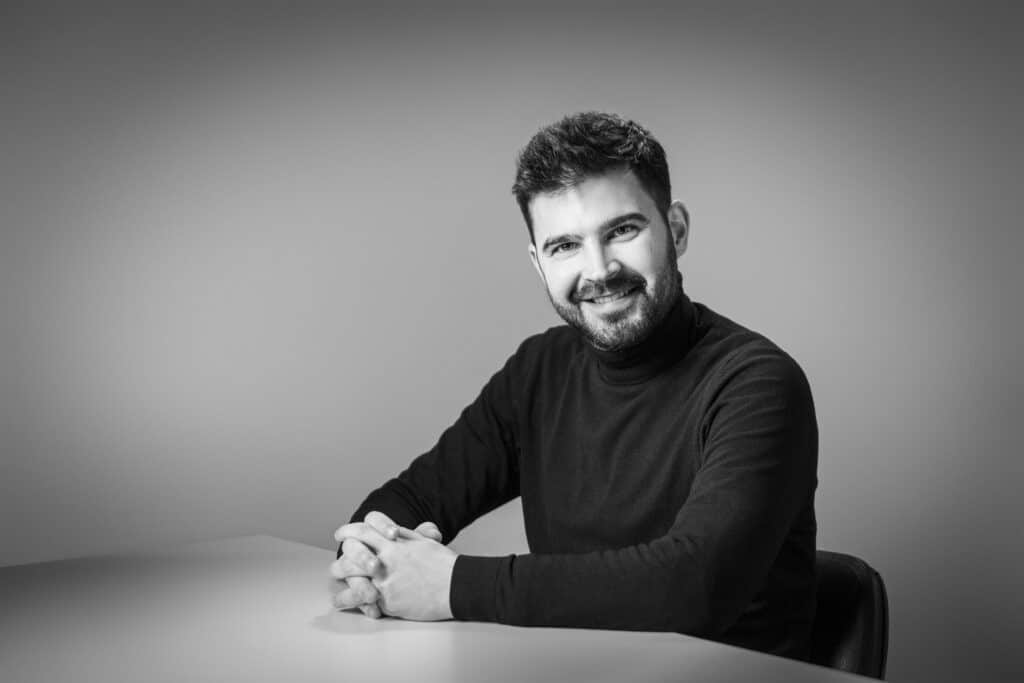
David de la Cruz Virgil
I’m David, and I’m from Jaén, which is located one hour from Granada. I’ve always held a full-stack position throughout my career, but I also like working with backend and frontend technologies. My role with Novatec began in January 2022. I constantly strive to step outside of my comfort zone, and attending the Novatec Summit is the ideal opportunity to do so.
Pablo Estévez González
I am Pablo Estévez González, a Telecommunications Engineer, working as a Site Reliability Engineer (SRE). I joined Novatec in December 2023 and I am responsible for the development and maintenance of reliable, scalable, and secure software systems. I’m also interested in artificial intelligence and how it might be used in other fields, like infrastructure and cybersecurity.
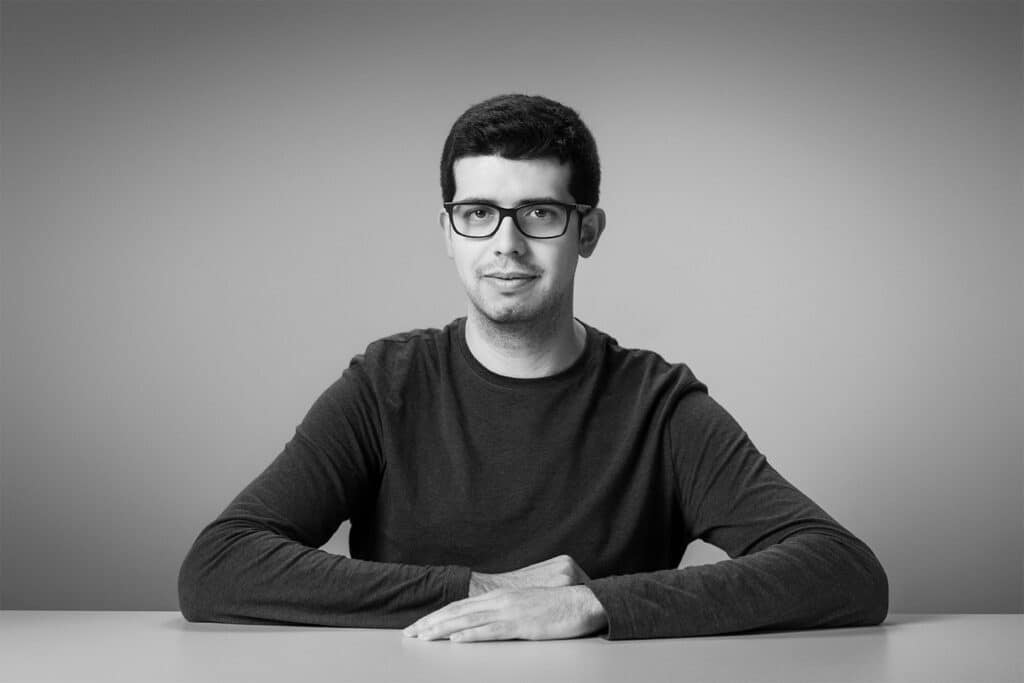
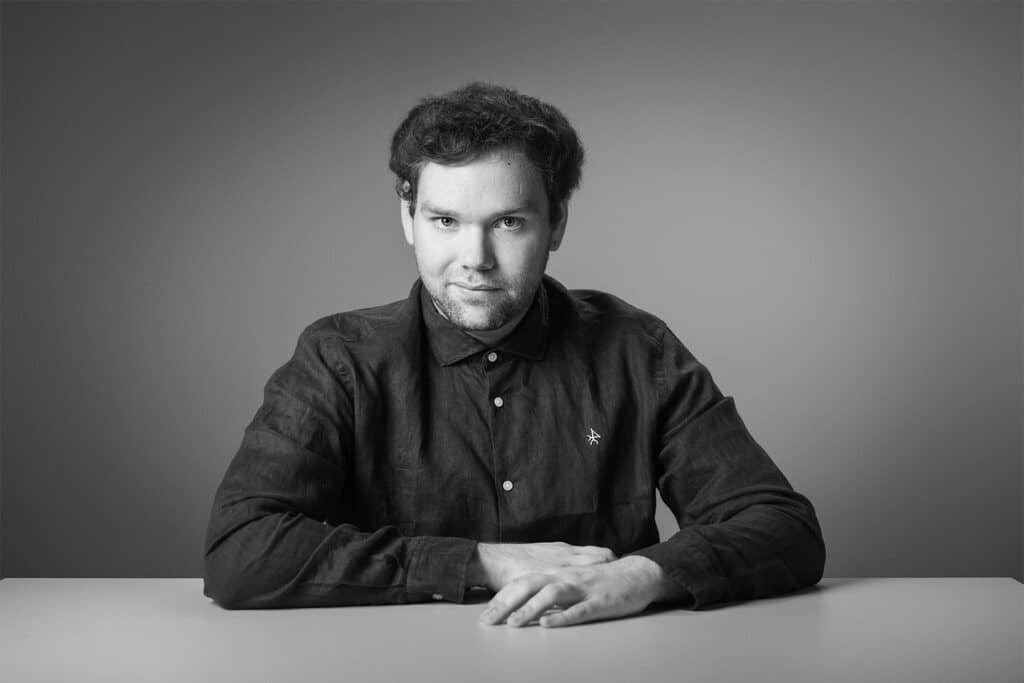
Alejandro Alguacil Camarero
I am Alejandro. Passionate about technology since I was a child. I was born in Granada and I studied a degree in Computers Engineering in Granada. I belong to the SRE team of Novatec. I joined Novatec in June 2022. It is the closest I have experienced to not working, because as they say if you work on something you love, it is not working. Before that, I have worked with Kubernetes on-premise for a military aircraft environment. Optimization is my slogan, and I am always looking to streamline IT processes (and also with my cars).
Daniel Rivero Capellán
I am Daniel Rivero a Backend software engineer from Sevilla working in Novatec since September 2022. I have been working with Java technology for more than 10 years in sectors such as public sector, energy and utilities or insurance and banking. As a backend guild member, one of my hobbies is cooking and baking in the kitchen, other hobbies are reading and spending time with friends.

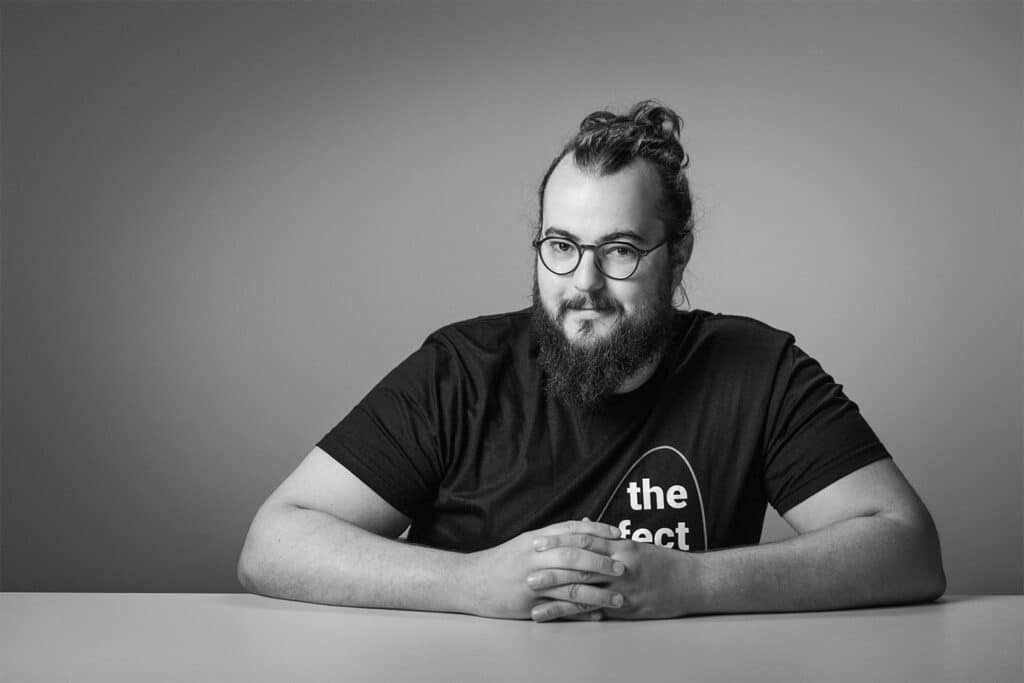
Jose Antonio Saborido Martín
My name is Jose, I studied computing engineering and I joined Novatec in May 2022. I’m currently working on the SRE team in an infrastructure standardization project with other SRE members. I really like to share my findings to my colleagues not just for teaching, but also to know and understand their opinions about new technologies.
Valentín Corral García
My name is Valentín, I studied a Superior Multiplatform Application Development Degree and I’ve been a software engineer at Novatec for two and a half years. I am a full-stack software engineer. For my personal hobbies, I adore board games, movies, video games, and, of course, technology.
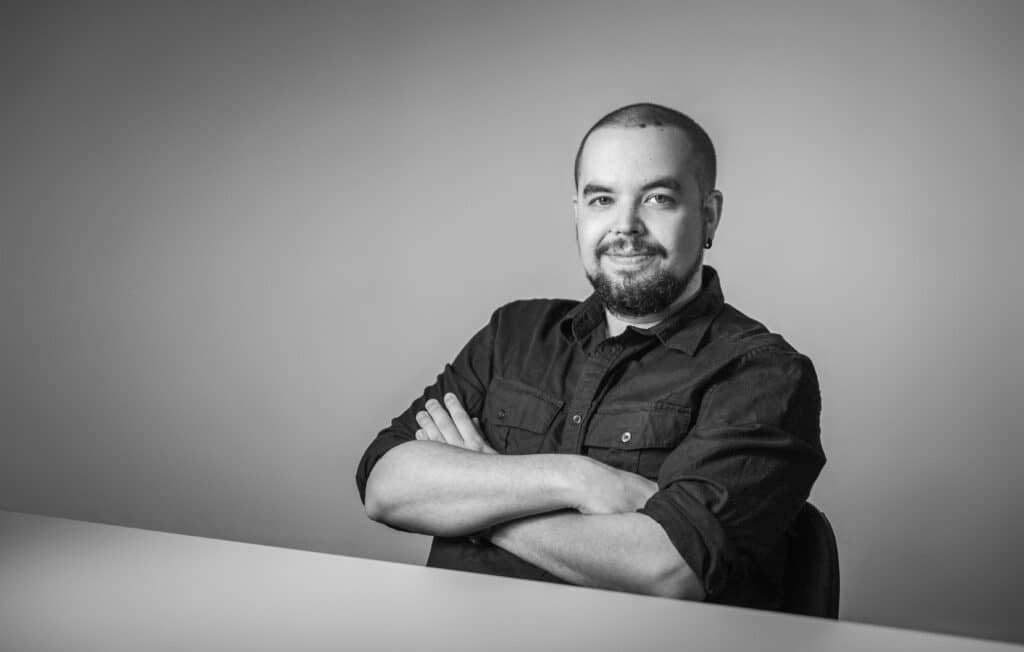

Julio Hamid Jawad Rodríguez
I am an Industrial Electronic Engineer with experience in different fields such as security, timing and synchronization, and infrastructure. After discovering the Cloud and DevOps world, I pivoted to an SRE position and have been working with infrastructure, deployment automation, and monitoring since then, becoming passionate about this area and enjoying investigating new upcoming technologies.
Álvaro Garrido López
I am Álvaro, a proud Granadian born in Alicante with a lifetime interest in computers. Over medical school, I chose software engineering. As an example, when I was 14 years old, I supported my father in resolving computer issues and developed my first website. I love music, languages, and spending time outside.
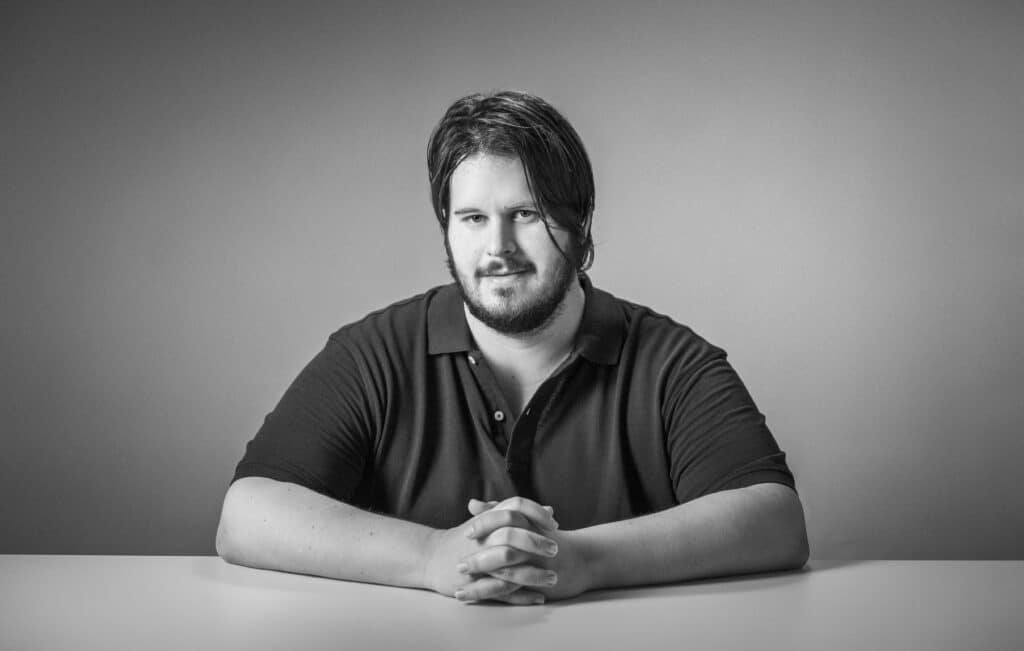
Your Contact Person
Feel free to contact Deborah for further information and about the registration process.